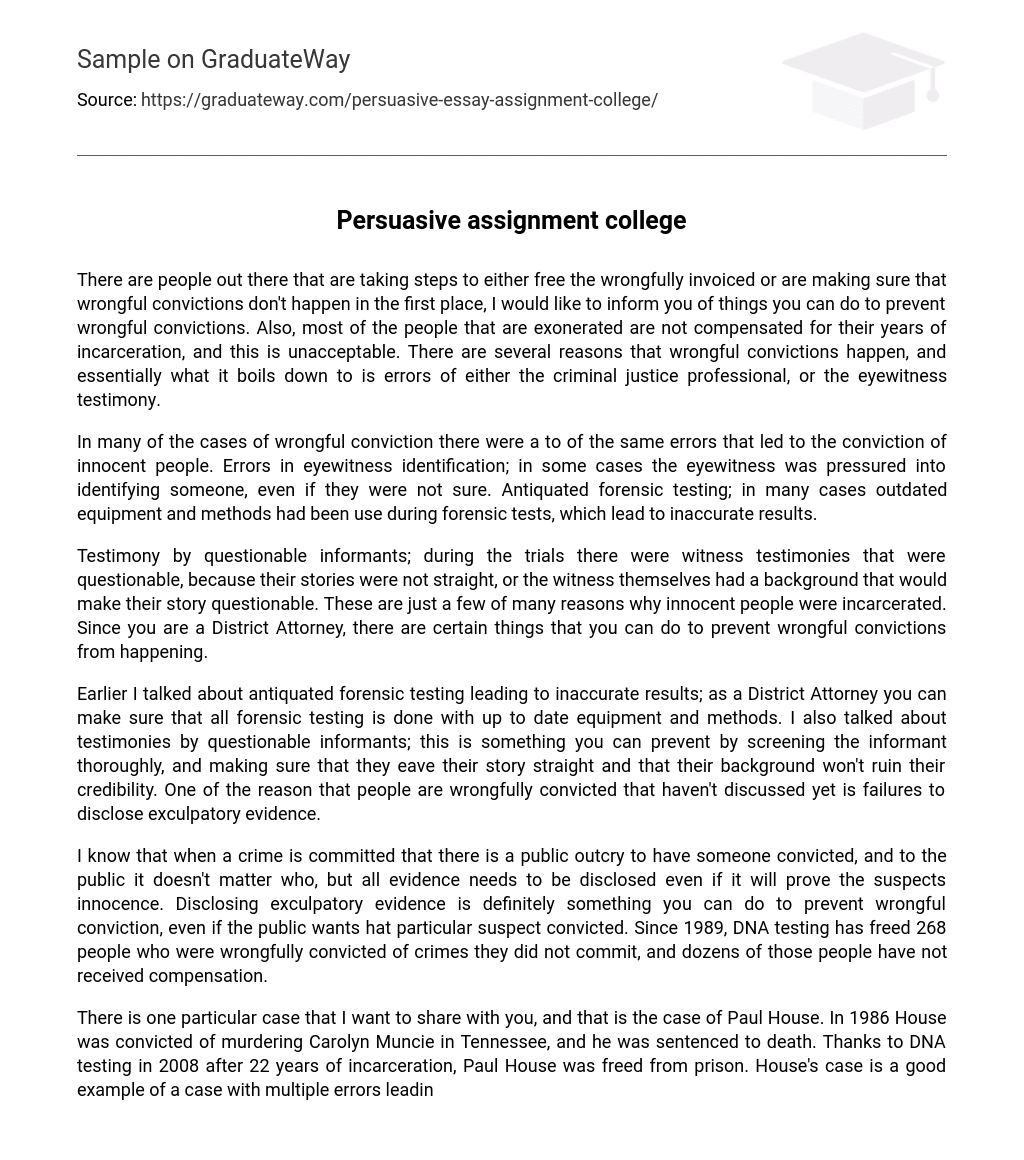There are people out there that are taking steps to either free the wrongfully invoiced or are making sure that wrongful convictions don’t happen in the first place, I would like to inform you of things you can do to prevent wrongful convictions. Also, most of the people that are exonerated are not compensated for their years of incarceration, and this is unacceptable. There are several reasons that wrongful convictions happen, and essentially what it boils down to is errors of either the criminal justice professional, or the eyewitness testimony.
In many of the cases of wrongful conviction there were a to of the same errors that led to the conviction of innocent people. Errors in eyewitness identification; in some cases the eyewitness was pressured into identifying someone, even if they were not sure. Antiquated forensic testing; in many cases outdated equipment and methods had been use during forensic tests, which lead to inaccurate results.
Testimony by questionable informants; during the trials there were witness testimonies that were questionable, because their stories were not straight, or the witness themselves had a background that would make their story questionable. These are just a few of many reasons why innocent people were incarcerated. Since you are a District Attorney, there are certain things that you can do to prevent wrongful convictions from happening.
Earlier I talked about antiquated forensic testing leading to inaccurate results; as a District Attorney you can make sure that all forensic testing is done with up to date equipment and methods. I also talked about testimonies by questionable informants; this is something you can prevent by screening the informant thoroughly, and making sure that they eave their story straight and that their background won’t ruin their credibility. One of the reason that people are wrongfully convicted that haven’t discussed yet is failures to disclose exculpatory evidence.
I know that when a crime is committed that there is a public outcry to have someone convicted, and to the public it doesn’t matter who, but all evidence needs to be disclosed even if it will prove the suspects innocence. Disclosing exculpatory evidence is definitely something you can do to prevent wrongful conviction, even if the public wants hat particular suspect convicted. Since 1989, DNA testing has freed 268 people who were wrongfully convicted of crimes they did not commit, and dozens of those people have not received compensation.
There is one particular case that I want to share with you, and that is the case of Paul House. In 1986 House was convicted of murdering Carolyn Muncie in Tennessee, and he was sentenced to death. Thanks to DNA testing in 2008 after 22 years of incarceration, Paul House was freed from prison. House’s case is a good example of a case with multiple errors leading to a wrongful invention, in his case there was mishandled evidence, prosecutorial misconduct, inaccurate DNA testing, and even cops with tunnel vision.
Even though House was freed he wasn’t granted a formal exoneration, because the DNA tests strongly suggests innocence but do not conclusively prove it. Since House has not been given a formal exoneration, he hasn’t received any compensation for spending 22 years in prison. As a District Attorney believe that you can help people like Paul House get their formal exoneration, so they can receive compensation for being incarcerated for many years.
Wrongfully convicting someone is one of the worst things that the government can do to someone, it is incredibly horrible, and absolutely unacceptable. I am writing this letter to you in hope that you may learn something from the information I have presented you. There are many reasons and errors that lead to people being wrongfully convicted, like outdated methods of forensic testing. As a District Attorney you have a responsibility to do everything you can to make sure that innocent people are not incarcerated.





